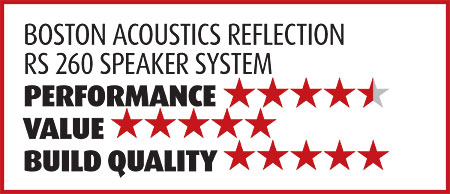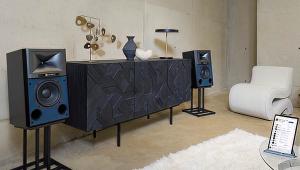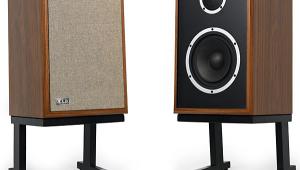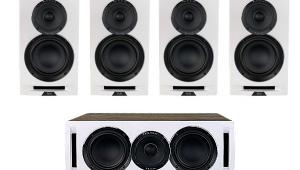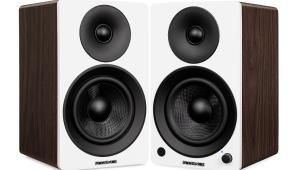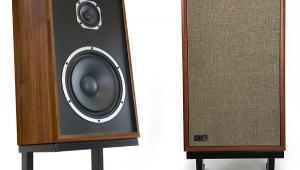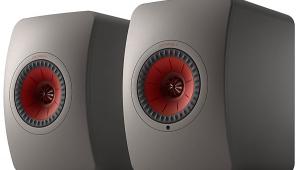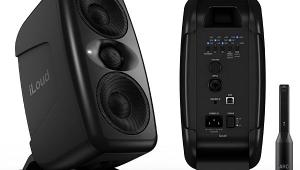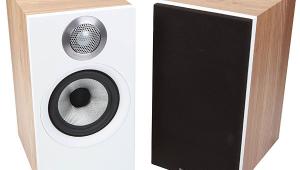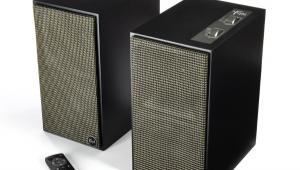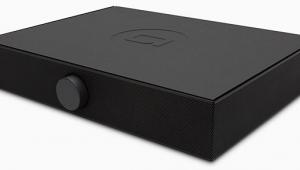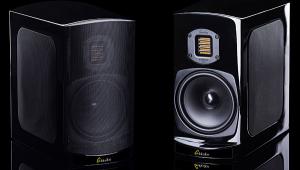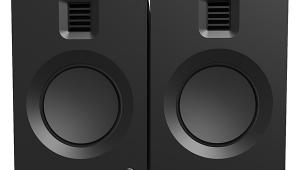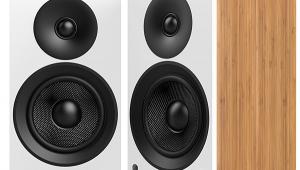Boston Acoustics Reflection RS 260 Speaker System Page 3
The movie sessions demonstrated the speakers’ handling of loud material. They displayed a polite top end that made loud effects easier to take, yet the tweeter didn’t roll off enough to starve the dialogue. This sense of the Reflection Series’ basic competence became a deeper respect for their musical character as the audio-only demos got underway.
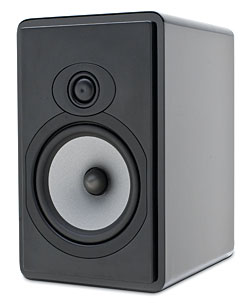 Chandos Records did a beautiful job of recording Camille Saint-Saëns’ Cello Sonatas with Christian Poltéra on cello and Kathryn Stott on piano. However, the CD does throw a curveball by tightly focusing the cello while diffusing the piano. This makes the cello the emotional center of attention, as it should be. But in the Dolby Pro Logic II Music mode, it also threw too much of the piano into the surround channels, so I quickly cut back to stereo. This left the cello tightly bound to the speakers, while the piano floated around them. It was impressive that the RS 260 was capable of this mixture of focus and diffusion. It was even more impressive that it worked in two channels. I’ve never heard a more fully fleshed-out cello sound—with emphasis on the warm, voluptuous sound of the instrument’s body, although the bowing was also fully audible. Bravo to both Chandos and Boston. I moved around the sofa a bit, but there was nothing beamy about the presentation. When I pulled off the magnetic grilles, I noted that the tweeter wasn’t mounted in any kind of waveguide.
Chandos Records did a beautiful job of recording Camille Saint-Saëns’ Cello Sonatas with Christian Poltéra on cello and Kathryn Stott on piano. However, the CD does throw a curveball by tightly focusing the cello while diffusing the piano. This makes the cello the emotional center of attention, as it should be. But in the Dolby Pro Logic II Music mode, it also threw too much of the piano into the surround channels, so I quickly cut back to stereo. This left the cello tightly bound to the speakers, while the piano floated around them. It was impressive that the RS 260 was capable of this mixture of focus and diffusion. It was even more impressive that it worked in two channels. I’ve never heard a more fully fleshed-out cello sound—with emphasis on the warm, voluptuous sound of the instrument’s body, although the bowing was also fully audible. Bravo to both Chandos and Boston. I moved around the sofa a bit, but there was nothing beamy about the presentation. When I pulled off the magnetic grilles, I noted that the tweeter wasn’t mounted in any kind of waveguide.
Randy Newman’s Little Criminals is one of the best pieces of vinyl I own. It documents the provocative master songwriter’s move toward a mainstream rock sound, abetted by L.A.’s best producers and session musicians. It also features prominent backing vocals by the Eagles on several songs. This album couldn’t have been better played, orchestrated, or recorded. And it translates beautifully to DPLII. Initially, I used the LP to tune the sub’s drum sound. I also goosed the master volume to compensate for both the muted highs of the tubed phono preamp and the speakers’ gentle top end. When the adjustments were complete, I enjoyed lush, golden, richly rewarding textures inhabiting a soundfield that comfortably dominated the room. Newman’s close-miked orchestral arrangements were major beneficiaries, somehow nudged out of the recording studio where they were undoubtedly recorded and into some ideal concert hall of the imagination. Listening to this album through this combination of components was pure pleasure.
Moonshine is one of the more elaborately arranged albums of Bert Jansch, the legendary acoustic guitarist who mixes traditional, blues, Middle Eastern, and other elements into a distinctive brew. I bought my impeccable white-label review-copy LP for $3.49 decades ago. Some other critic’s lack of taste was my gain. The production by Jansch’s Pentangle colleague, bassist Danny Thompson, favored the voice over all other instruments. This is an odd choice, since Jansch is best known as a guitarist, and the album is graced by a flute consort, fiddles, harp, and other niceties. It also has virtually no reverb, which gives the album a stark, airless feel characteristic of its 1973-era recording. Drums on the opening track were strong enough to make me back off the sub volume. After that, the main challenge for the speakers was to pull the reticent guitar out of the mix. A more aggressive tweeter might have done a better job of this, but I greatly preferred the RS 260’s overall rounded tonal balance. It merely told the truth about this technically flawed but musically rich album.
I started this review by noting that the higher-end VS Series has been used in packages with Denon A/V receivers. Just before I completed the review, I asked if the RS would be marketed the same way. I couldn’t get a firm yes, but D&M didn’t rule out the prospect. I’m guessing a lot of consumers would love to get speakers of this caliber with a decent A/V receiver at an affordable price.
Boston Acoustics’ Reflection Series unerringly does just about everything right. The RS 260’s voicing satisfies the different but overlapping needs of action movies and serious music. It’s also compatible with the midpriced A/V receivers that will probably run it in most systems. This speaker is made to be lived with. The RPS 1000 sub is commendably free from one-note puffery. The longer I listened to it, the more I came to respect it. I especially liked the way it dispersed bass in my room. It was like having two subs in the room.
In general, the RS fills the gap between the VS and the low-priced CS, leaning toward the former’s world-class performance. At this price, you couldn’t get better value for your money.
